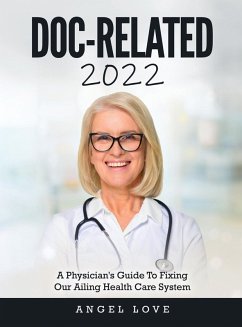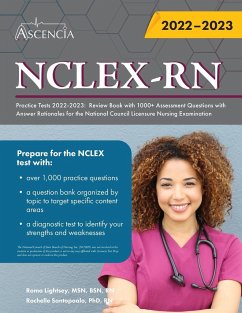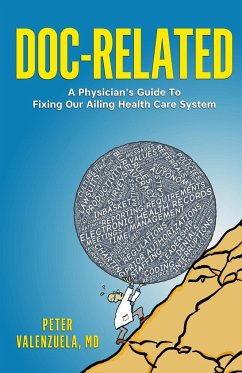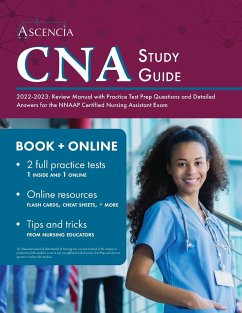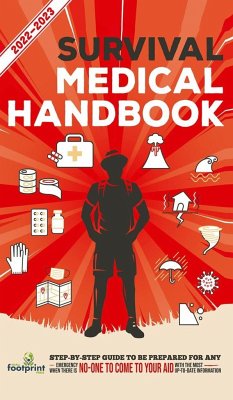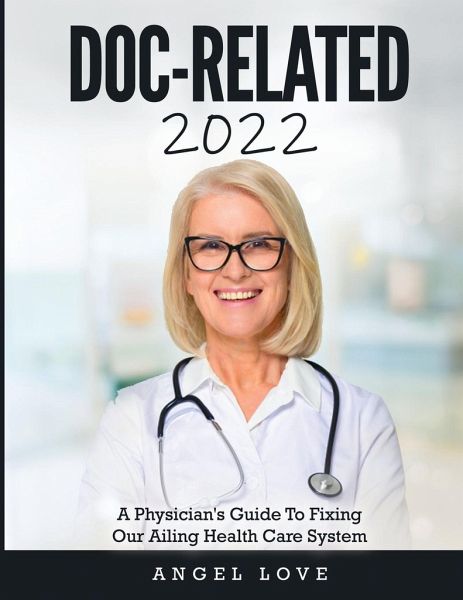
DOC-RELATED 2022
A Physician's Guide To Fixing Our Ailing Health Care System

PAYBACK Punkte
11 °P sammeln!
Health care is the largest employer in the United States (U.S.), with over 16 million people in the industry. Over one million of them are practicing physicians. I'm one of them. Nearly 70 percent of physicians are employed by hospitals or corporate entities. Corporate entities include health insurers, private equity firms, and entities that own multiple physician practices. For physicians, rising practice costs and stagnant reimbursements have made it difficult to be independent. Doctors also see the writing on the wall related to emerging payment models that will require large financial inve...
Health care is the largest employer in the United States (U.S.), with over 16 million people in the industry. Over one million of them are practicing physicians. I'm one of them. Nearly 70 percent of physicians are employed by hospitals or corporate entities. Corporate entities include health insurers, private equity firms, and entities that own multiple physician practices. For physicians, rising practice costs and stagnant reimbursements have made it difficult to be independent. Doctors also see the writing on the wall related to emerging payment models that will require large financial investments in care management and information technology. In addition, the physician workforce is getting younger, and they desire more work-life balance, not the long hours I practiced earlier in my career. The result is that healthcare professionals are sacrificing full autonomy for stability. When I began practicing in 2001, I was the medical director of a rural clinic in Texas, performing the full scope of family medicine, including clinic, inpatient care, emergency room, nursing home, and even home visits. I delivered babies, performed c-sections, endoscopies, tubal ligations, tonsillectomies and assisted with various other surgeries. I followed my patients and their families throughout the continuum of care.Back then, I worked endless hours, but always loved what I did. That was a time before electronic health records and other programs and regulations increased the workload of what we do today. I'm not trying to argue against these measures, but they have taken a toll on the joy of practicing medicine.While practicing rural medicine, I realized I knew little about the business side of medicine, so I went back to school to get my Master of Business Administration (MBA). The business degree gave me new insights on streamlining workflows, health care finance, and how our system compares to other developed countries. It ignited a passion for me to change the industry on a bigger scale.As I've transitioned from full-time clinical care to more administrative responsibilities, it's been eye-opening to see how organizations make strategic and financial decisions. Research shows that only 16 percent ofhealth care organizations consider the impact of strategic decisions on the resilience and well-being of those affected. I initially thought writing about the inefficiencies in our health care system and its impact on health care professionals would be dated. That organizations would have solved this problem. Unfortunately, not much has changed over the last few years. I've always had a sense of humor about health care. This became official when my classmates named me class comedian in medical school. Malcolm Gladwell said, "Comedians have become the truth tellers. Satire allows you to say almost anything. That's where truth is spoken to power in our society. When you sugar-coat a bitter truth with humor, it makes the medicine go down."





